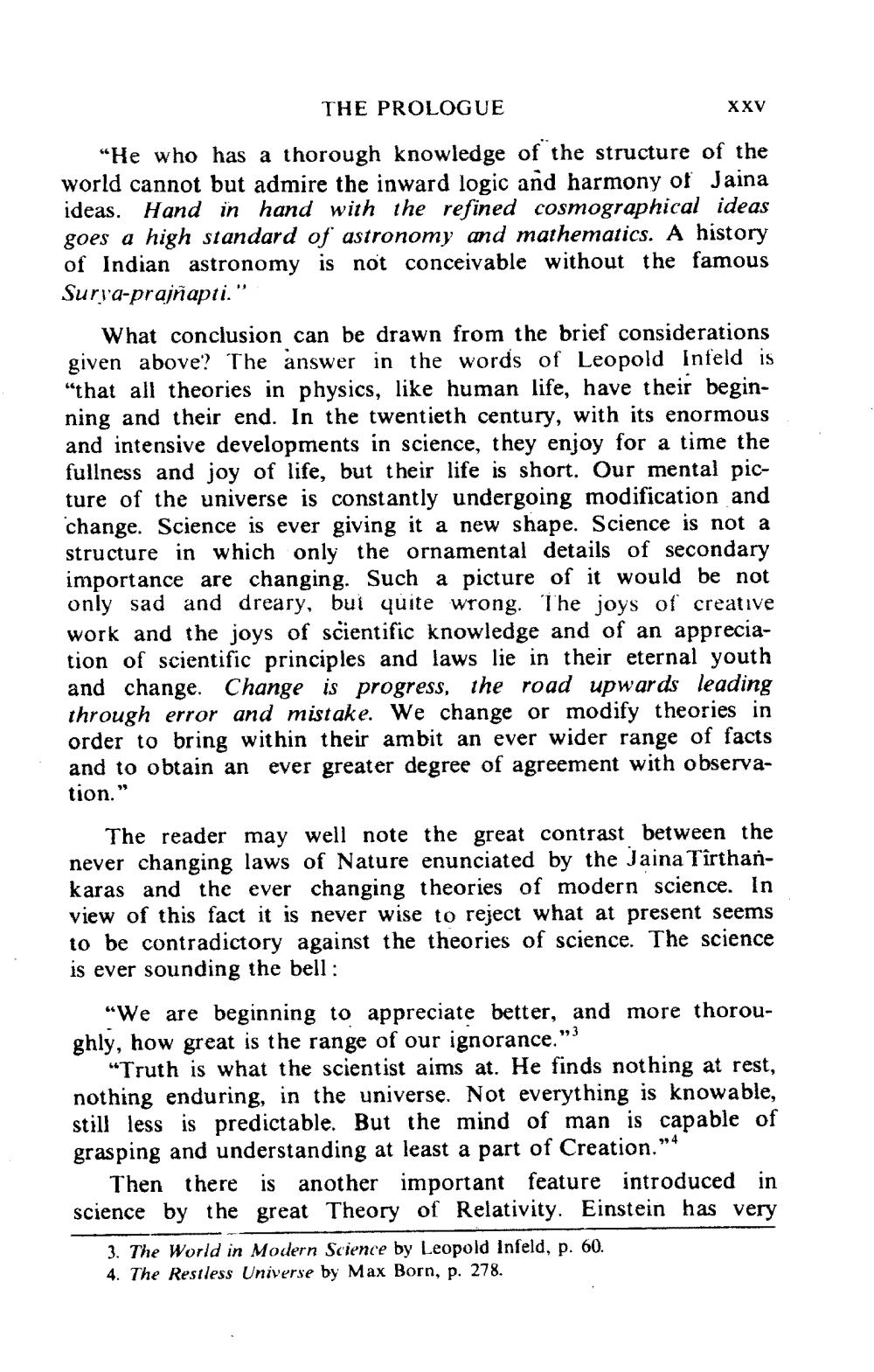________________
THE PROLOGUE
XXV
"He who has a thorough knowledge of the structure of the world cannot but admire the inward logic and harmony of Jaina ideas. Hand in hand with the refined cosmographical ideas goes a high standard of astronomy and mathematics. A history of Indian astronomy is not conceivable without the famous Surya-prajñapti."
What conclusion can be drawn from the brief considerations given above? The answer in the words of Leopold Infeld is "that all theories in physics, like human life, have their beginning and their end. In the twentieth century, with its enormous and intensive developments in science, they enjoy for a time the fullness and joy of life, but their life is short. Our mental picture of the universe is constantly undergoing modification and change. Science is ever giving it a new shape. Science is not a structure in which only the ornamental details of secondary importance are changing. Such a picture of it would be not only sad and dreary, but quite wrong. The joys of creative work and the joys of scientific knowledge and of an appreciation of scientific principles and laws lie in their eternal youth and change. Change is progress, the road upwards leading through error and mistake. We change or modify theories in order to bring within their ambit an ever wider range of facts and to obtain an ever greater degree of agreement with observa
tion."
The reader may well note the great contrast between the never changing laws of Nature enunciated by the Jaina Tîrthankaras and the ever changing theories of modern science. In view of this fact it is never wise to reject what at present seems to be contradictory against the theories of science. The science is ever sounding the bell:
"We are beginning to appreciate better, and more thoroughly, how great is the range of our ignorance."3
"Truth is what the scientist aims at. He finds nothing at rest, nothing enduring, in the universe. Not everything is knowable, still less is predictable. But the mind of man is capable of grasping and understanding at least a part of Creation.""
Then there is another important feature introduced in science by the great Theory of Relativity. Einstein has very
3. The World in Modern Science by Leopold Infeld, p. 60.
4. The Restless Universe by Max Born, p. 278.




